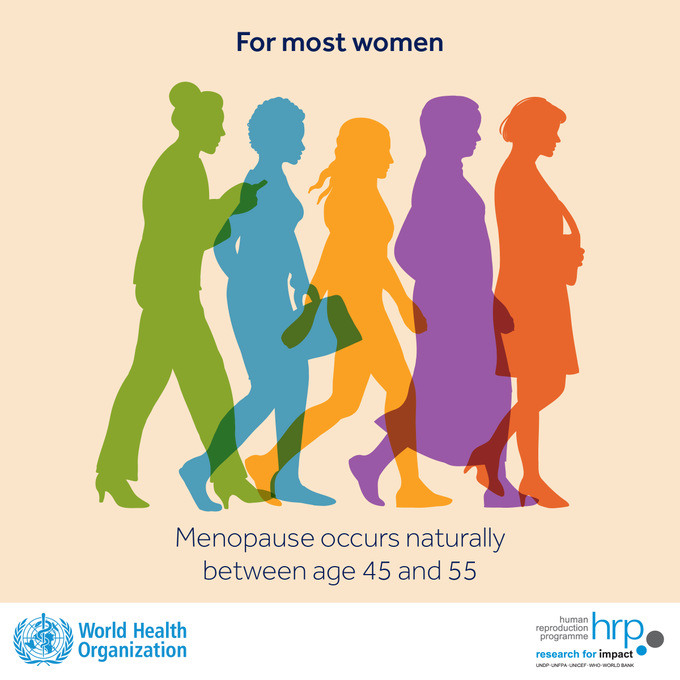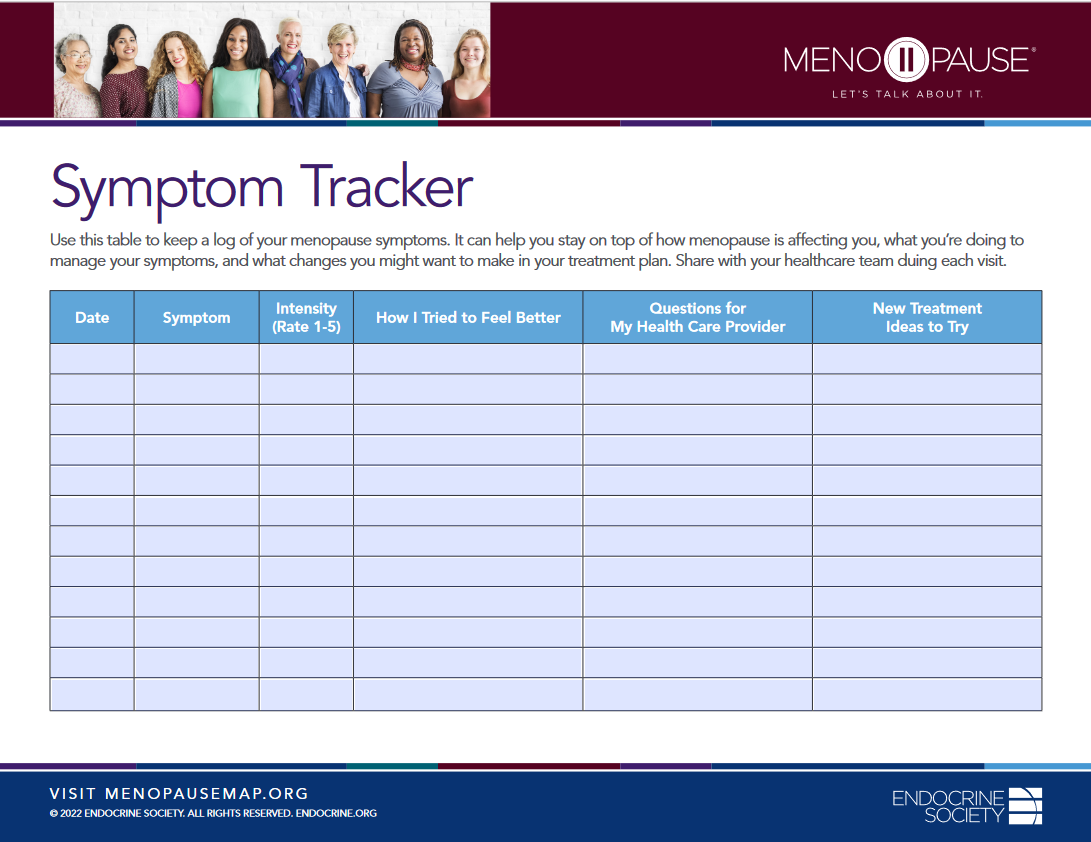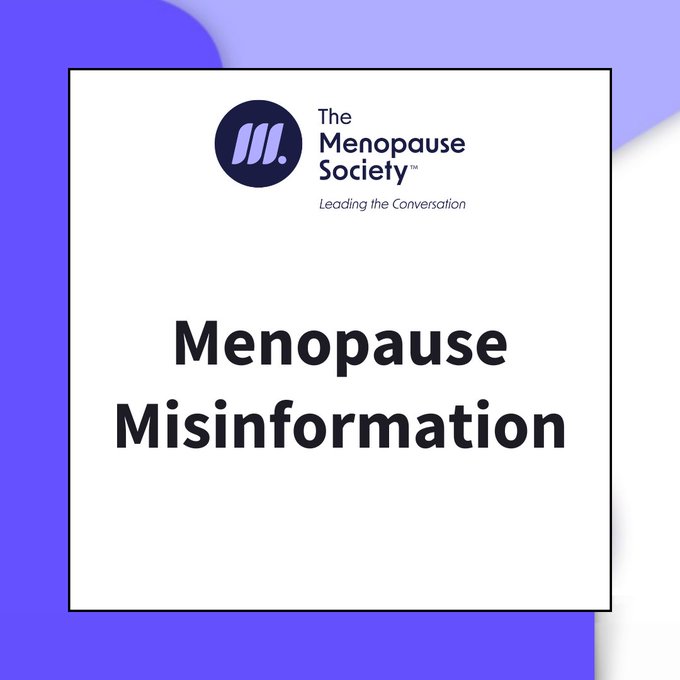“Menopause does not increase cancer risk,
but
the likelihood of many cancers increases with age”.1
Umbrella
What may the Cancer and Menopause Umbrella include?
Depending on the Source (DotS) this Umbrella may include:
- Age and Cancer
- Cancer and Age
- Cancer and Menopause
- Menopause and Cancer
Menopause
Is there an association between menopause and cancer?
In Cancer the (United States) Menopause Society (formerly the North American Menopause Society) elaborate on:
 “Women have a one-in-three chance of developing cancer in their lifetimes. Menopause does not increase cancer risk, but the likelihood of many cancers increases with age”.2
“Women have a one-in-three chance of developing cancer in their lifetimes. Menopause does not increase cancer risk, but the likelihood of many cancers increases with age”.2 Health Care Provider
What if I would like to lower my risk of cancer?
If you would like to lower your risk of cancer, it may be in your best interest to choose to talk to your health care provider about this. The (United States) National Cancer Institute note:
Health Topics A-Z
Where may I find Health Topics A-Z related to Cancer and Menopause?
In Health Topics A-Z you may find:
Links
Where may I find Links related to Cancer and Menopause?
Your Country may have Links similar to:
Links
This Links List to third party websites is neither comprehensive nor exhaustive. Inclusion on this Links List does not imply endorsement or recommendation. Non-inclusion on this Links List does not imply non-endorsement or non-recommendation. Third party websites are not under the control of Meno Martha International Menopause Directory. Third party websites may contain explicit medical images and/or sexual references. Please read Meno Martha International Menopause Directory’s Links Policy before proceeding to a Link. Please contact Webmaster if you experience a problem with a Link.New or Updated
- BMS TV: Post Cancer Treatments
- Consumer Video and Podcast Series: 2025 Consumer Videos and Podcasts – What Is the Current State of Genetic Testing For Women [22 April 2025]
- How Cancer Can Affect Sex and Intimacy [15 April 2025]
- How Cancer Surgery Can Affect Sex for Women [15 April 2025]
- How To Reduce Your Risk of Cancer [20 February 2025]
- Videos & Podcasts: Videos – Menopause and Hormone Therapy: Current Perspectives and Controversies [18 October 2024]
- About Cancer
- Alcohol Use and Cancer
- Askearlymenopause.org [Ask EM] [+ Video: What Is Early Menopause?]
- BMS TV: Menopause Explained
- BMS TV: HRT and Breast Cancer: Overall Risks and Benefits
- BMS TV: HRT and the Risk of Breast Cancer
- BMS TV: Post Cancer Treatments
- BRCA Gene Test for Breast and Ovarian Cancer Risk
- Bioidentical Hormones: Are They Safer?
- Breast Cancer At the Menopause
- Can You Prevent Cancer With Lifestyle Changes? [+ Video Courtesy: Mayo Clinic News Network]
- Cancer
- Cancer
- Cancer
- Cancer A-Z
- Cancer Facts for Women
- Cancer Prevention Recommendations
- Cancer Survivors: Care for Your Body After Treatment
- Cancer: Cancer and Women
- Cancer: Healthy Living After Cancer
- Cancer: Preventing Cancer
- Cancer and Hair Loss
- Canceradvocacy.org [National Coalition for Cancer Survivorship, United States]
- Causes of Cancer and Reducing Your Risk
- Chemotherapy and Hair Loss: What To Expect During Treatment
- Consumer Video and Podcast Series: 2023 Consumer Videos and Podcasts – Lifestyle Modification and Prevention of Breast Cancer
- Consumer Video and Podcast Series: 2023 Consumer Videos and Podcasts – NAMS 2023 Nonhormone Therapies Position Statement for Bothersome Menopause Symptoms
- Consumer Video and Podcast Series: 2023 Consumer Videos and Podcasts – New FDA-Approved Nonhormone Option for the Treatment of Hot Flashes
- Consumer Video and Podcast Series: 2024 Consumer Videos and Podcasts – Preparing for Your Menopause Health Care Visit
- Consumer Video and Podcast Series: 2025 Consumer Videos and Podcasts – What Is the Current State of Genetic Testing For Women
- Consumer Health: Cancer Myths vs. Facts
- Coping With Cancer
- Early Menopause Due To Chemotherapy Radiotherapy
- Emotional Recovery After Cancer Treatment
- Experts Answer Your Menopause Questions In New Video
- Find A Menopause Practitioner [United States and Other]
- Find An AMS Member [Australasian Menopause Society i.e. Australia and New Zealand]
- Find Your Nearest BMS Menopause Specialist [British Menopause Society]
- Foundationforwomenscancer.org [Foundation for Women’s Cancer, United States]
- Genetic Testing To Learn about Your Risk of Breast and Ovarian Cancer: Questions for the Doctor
- Get Checked – Women: A Cancer Prevention Plan for Women
- Glossary: Definitions, & Phonetic Pronunciations
- Gynecologic Cancers
- Gynecological Cancers
- HRT Questions Answered
- Hot Flashes
- Hot Flashes: What Can I Do? [+ Video: What Are the Signs and Symptoms of Menopause?]
- How Cancer Can Affect Sex and Intimacy
- How Cancer Surgery Can Affect Sex for Women
- How To Reduce Your Risk of Cancer
- Later Years (Around 50 Years and Over): Menopause and Post Menopause Health – Signs and Symptoms of Menopause [+ Video: Talking Menopause With Your GP] [Other Languages and Formats]
- Later Years (Around 50 Years and Over): Menopause and Post Menopause Health – Supporting Someone Through the Menopause [+ Video: Men Don’t Need To Know About Menopause] [Other Languages and Formats]
- Mayo Clinic Minute: Help With Hot Flashes Due To Menopause [+ Video]
- Mayo Clinic Minute: How Lifestyle Changes May Help Manage Menopause Symptoms [+ Video]
- Mayo Clinic Minute: Plant-Based Diet Is Encouraged for Patients With Cancer [+ Video Courtesy: Mayo Clinic News Network]
- Mayo Clinic Minute: The Right Way To Talk With Someone Who Has Cancer [+ Video Courtesy: Mayo Clinic News Network]
- Mayo Clinic Minute: Tips From A Gynecological Surgeon on Recovery From Surgery [+ Video Courtesy: Mayo Clinic News Network]
- Mayo Clinic Q&A Podcast: Cancer Survivorship Needs Are Unique for Each Survivor [+ Video Courtesy: Mayo Clinic]
- Menopause
- Menopause
- Menopause

- Menopause: Identification and Management NICE Guideline Published: 12 November 2015 Last Updated: 07 November 2024]

- Menopause: Identification and Management: NICE Guideline [NG23] [07 November 2024]
- Menopause Map: Downloadable Resources – My Personal Path Print Tools: Questions for Your Health Care Provider

- Menopause Map: Downloadable Resources – My Personal Path Print Tools: Symptom Tracker

- Menopause Patient Information [Videos] 5. Lifestyle Advice In Menopause & Perimenopause
- Menopause Treatment Options After Cancer
- Menopause and Breast Cancer
- Menopause: Things You Can Do
- Menopause: Understanding the Changes and Finding Relief | Dr Susan Davis | The Proof Podcast EP 256
- National Center for Complementary and Integrative Health: Cancer and Complementary Health Approaches: What You Need To Know
- National Center for Complementary and Integrative Health: Herbs At A Glance
- National Center for Complementary and Integrative Health: How Safe Is This Product or Practice?
- National LGBT Cancer Network
- Navigating Menopause Together: How Partners Can Help
- Navigating Menopause: Expert Insights and Solutions | Dr Susan Davis | The Proof Podcast EP 245
- Non-Estrogen Treatments for Menopausal Symptoms
- Nonhormone Treatments for Hot Flashes and Night Sweats
- OCCAM Office of Cancer Complementary and Alternative Medicine [National Cancer Institute, United States]
- Office of Dietary Supplements: Dietary Supplement Fact Sheets
- Questions To Ask Your Doctor About Cancer
- Signs and Symptoms of Cancer
- Supporting A Loved One Through Menopause
- The Menopause Society Statement on Misinformation Surrounding Hormone Therapy

- The Truth About Menopause Supplements | Dr Sarah Berry
- Tips To Help Manage Menopause Symptoms
- Tips for Tracking Your Bleeding
- Using Natural Therapies In the Menopause Transition – Webinar
- Vaginal Dryness After Menopause: How To Treat It?
- Video & Podcast Library: Videos – World Menopause Day 2024: Menopause and Hormone Therapy: Current Perspectives and Controversies
- Videos & Podcasts: Videos – Menopause and Hormone Therapy: Current Perspectives and Controversies
- Videos and Podcasts: Videos – How Do I Deal With the Menopause After A Diagnosis of Gynaecological Cancer
- Videos and Podcasts: Videos – Menopause and Abnormal Bleeding
- Webinars: Previous – Breast Cancer
- Webinars: Previous – Sexual Dysfunctions, Update on Gynae Cancers and Management
- World Menopause Day 2024: Leaflet for Women [Multiply Languages]
- World Menopause Day 2024: Poster for Women
- You Need To Know [+ Video: Bleeding After the Menopause – An Important Message You Need To Know]
Sources
Where may I find the Sources quoted?
You may find the Sources quoted:
Sources
- Cancer. Menopause Society https://menopause.org/patient-education/menopause-topics/cancer Accessed: 04 March 2025
- Cancer. Menopause Society https://menopause.org/patient-education/menopause-topics/cancer Accessed: 04 March 2025
- Skin Cancer Prevention (PDQ)–Patient Version: Skin Cancer Prevention – Avoiding Risk Factors and Increasing Protective Factors May Help Prevent Cancer. Updated: 23 October 2023. National Cancer Institute https://www.cancer.gov/types/skin/patient/skin-prevention-pdq#section/_16 Accessed: 04 March 2025








